Fifteen years after my family emigrated to Canada, I decided to spend the summer after my university graduation backpacking through France and Spain with Dina, my closest girlfriend. We scoured Paris together, rode the overnight trains, sweated under the intense heat of the Andalucian plains, took countless photos of Gaudi’s wonderful modernist architecture in Barcelona, ate churros con chocolat in the back alleys of Madrid.
I was drawn to the south of Spain, in part because Federico Garcia Lorca influenced so much of my poetry that I just had to see the house where he was born in Fuente Vaqueros, to see the mystical Granada he had loved and hated. I wanted to breathe in the same dry, white-hot air that had filled his lungs and infused his verses. And it was there in Moorish Spain, at the foothills of the Alhambra, that I heard the ancient Judaic language of Ladino for the first time.
 The song was “Durme, Durme,” an ancient lullaby sang by the Sephardic Jews of Spain before they were expelled from the Iberian Peninsula by Queen Isabella’s decree. I don’t remember exactly how I came to hear it – I might have been standing under the awning of a shop, taking a break from the unrelenting heat, or while eating cold gazpacho out on a scorching patio. But as soon as the words entered my consciousness, I recognized them. I knew the song, somehow. I started to hum along with it; my mouth began to shape the words, almost as though they were a memory just hanging on the tip of my tongue.
The song was “Durme, Durme,” an ancient lullaby sang by the Sephardic Jews of Spain before they were expelled from the Iberian Peninsula by Queen Isabella’s decree. I don’t remember exactly how I came to hear it – I might have been standing under the awning of a shop, taking a break from the unrelenting heat, or while eating cold gazpacho out on a scorching patio. But as soon as the words entered my consciousness, I recognized them. I knew the song, somehow. I started to hum along with it; my mouth began to shape the words, almost as though they were a memory just hanging on the tip of my tongue.
The trouble was, I wasn’t Jewish. I didn’t have any Jewish ancestors that I knew of and my father had died long ago, when I was 13 – before I could ask him any questions about his background. So I chalked up the experience as a déjà vu oddity, one of those freakish yet ubiquitous experiences we all have once in a while, like thinking of someone just as the phone rings or dreaming of an old friend who happens to email us the next day.
A few days later I parted ways with Dina. We said goodbye in Marseilles, a sun-scorched, dusty place just outside the Italian border. I journeyed on to Rome, then Venice, where I found lodgings in a spartan Benedictine nuns’ convent and spent my first afternoons on the lagoon sitting on bridge steps near the canal, gazing at the mossy green water, writing poetry and sketching the images of stray dogs against alabaster buildings.
 Then it was time to travel eastwards into Europe. My ultimate destination was Romania, where I planned to track down relatives in my father’s old village and find out more about my family’s past. But before that, I wanted to visit Krakow, Poland so that I could make a pilgrimage to Auschwitz, the Nazi extermination camp where millions of people met their deaths. I wanted to see the place in order to understand the scope of the brutality that had swept Europe only two generations earlier.
Then it was time to travel eastwards into Europe. My ultimate destination was Romania, where I planned to track down relatives in my father’s old village and find out more about my family’s past. But before that, I wanted to visit Krakow, Poland so that I could make a pilgrimage to Auschwitz, the Nazi extermination camp where millions of people met their deaths. I wanted to see the place in order to understand the scope of the brutality that had swept Europe only two generations earlier.
On the day I visited Auschwitz and Birkenau, the sun was high up in the sky. The grass was knee-tall and swayed against my bare legs. The floorboards underneath my feet crackled and snapped as I walked among the barracks crammed with three-tiered bunk slots. Sunlight filtered in through gaps in the planks that formed the walls, smearing long, arrow-like shafts along the ground.
I thought of those nameless prisoners and something deep inside me stirred – the same familiarity I’d experienced when I heard that Ladino song back in Granada. I closed my eyes and inhaled deeply, and I swear I recognized that smell. The smell of burning ashes and wet wood, of fear and lost hopes.
I was here before.
I was twenty-five years old and World War Two had been over for close to sixty years but somehow I had been there, or someplace equally terrible. In the intense heat of that August afternoon, an ice-cold shudder passed right through me.
 I hadn’t expected this. At sixteen years old, I was recruited by a Canadian neo-Nazi group called the Heritage Front and sent to work for Ernst Zundel, renowned Holocaust-denier and publisher of anti-Semitic propaganda that was distributed worldwide. I left the group at age 18 and testified against its leaders in court, but it took several years for me to get over the guilt of having been part of such a hateful thing. To understand that as a minor girl, I had been exploited by group leaders.
I hadn’t expected this. At sixteen years old, I was recruited by a Canadian neo-Nazi group called the Heritage Front and sent to work for Ernst Zundel, renowned Holocaust-denier and publisher of anti-Semitic propaganda that was distributed worldwide. I left the group at age 18 and testified against its leaders in court, but it took several years for me to get over the guilt of having been part of such a hateful thing. To understand that as a minor girl, I had been exploited by group leaders.
In the years that followed I lived in hiding, and during that time I used many aliases. The surname I used the longest was Cohen – for whatever reason it felt natural that I would adopt a Jewish surname, and that one in particular seemed to speak to me.
Years later, after I managed to track down my uncle in my father’s village and started piecing together my father’s past, the truth came out. It came in the form of a pretty lacquered box that had been my grandmother’s most prized possession. It was inscribed for her, bearing the name “Anna” on its bottom. And when I opened it, the name Kohan was etched inside its lid – a Hungarian version of….you guessed it, Cohen.
Discovering that my father had been Jewish was a surreal experience. For so long I’d wanted it to be true, because so much would make sense. My collection of babushka dolls and Russian things, my affinity for Ladino music, my connection to Jewish people, klezmer and food, the fact that the Transylvanian region where my father’s family came from was a known place where Ashkenazi and Sephardic Jews had intermingled.
For ten years I’d wanted to convert to Judaism, but it was only after I took a 23andme DNA test that the choice to become a Jew became simple. The results showed I had Romanian, Russian, Polish, Hungarian and Italian/Greek roots, and confirmed my heritage as a blend of Ashkenazi, Balkan and Sephardic. The Relative Finder tool even matched me to over two dozen third and fourth cousins with the surnames Cohen, Cohn, Kaplan or Kuhn.
For me, the process of conversion wasn’t simply a matter of embracing the hidden religion of my ancestors and their multigenerational persecution – it also allowed me to accept that the genetic memories I’d experienced all my life were real.
GENETIC MEMORY, AND WHY IT MATTERS
 Wikipedia defines genetic memory as a memory present at birth that exists in the absence of sensory experience, and is incorporated into the genome over long spans of time.
Wikipedia defines genetic memory as a memory present at birth that exists in the absence of sensory experience, and is incorporated into the genome over long spans of time.
Why should it matter to you?
Discoveries in the field of genetic memory have immense ramifications on our society, particularly among previously-subjugated persons. What would happen if science proved that trauma was passed down in our cells, from parent to child? What if the anger and mistrust harboured by Aboriginal or African-American peoples isn’t something they can just “get over”? What if they are given a reason to sue governments for restitution based on genetic stressors that have impeded their ability to function?
Sure, one could argue that generations of abused and exploited people will produce offspring who mistrust their government because they grew up hearing tales of discrimination and injustice from their parents and grandparents.
But what if that pain goes beyond anecdotal tales about deceased ancestors absorbed by a marginalized community? What if the pain of a massive traumatic event suffered by a parent or grandparent continues to live within your body, in your physical tissues, in your subconscious anxiety and reflex reactions?
Increasing evidence shows that it can, and indeed it does.
I have researched genetic memory for the last decade, and especially over the last two years as I began working on a memoir that discusses the imprint of multi-generational trauma and suffering. Time and again, my research led me nowhere. The scarcity of scientific data is easily due to academic biases: which scientist is going to study the field if he/she expects their work to be derided by fellow academics who pledge irrefutable allegiance to the Darwinian model?
The History of Genetic Memory
 In the late eighteenth century, there lived a French biologist by the name of Jean-Baptiste de Lamarck. He was both a predecessor of Darwinian theory and one of its competitors. He was, in fact, one of the first men in history to propose an evolutionary structure to humanity’s existence. Darwin was a mere babe in the cradle when Lamarck began to experiment on organisms using the theory of genetic memory – rather than natural selection – to account for much of the evolution of all species.
In the late eighteenth century, there lived a French biologist by the name of Jean-Baptiste de Lamarck. He was both a predecessor of Darwinian theory and one of its competitors. He was, in fact, one of the first men in history to propose an evolutionary structure to humanity’s existence. Darwin was a mere babe in the cradle when Lamarck began to experiment on organisms using the theory of genetic memory – rather than natural selection – to account for much of the evolution of all species.
He basically asserted that an organism can pass on its memories and experiences to its offspring, and that in and of itself constitutes our evolution.
A new biologist by the name of Paul Kammerer took up the Lamarckian torch in the 1920s, when he experimented on toads in order to prove the validity of genetic memory. Before his results could be released, however, the experiment was tampered with by Nazi sympathizers who sought to bury Kammerer and his work because of his political beliefs.
Since Lamarck and Kammerer’s work was dismissed and/or destroyed, the study of genetic memory has been dormant. At least, until the 21st century.
That’s when a miracle happened. It started with the new and exciting field of Epigenetics, which explores the concept that traits can be passed down to successive generations without alteration to the genetic code but via some other means, and that the experiences of one’s ancestors have a direct effect on our physical and emotional development today.
 One of epigenetics’ most quoted (and explosive) studies focuses on a 19th century province in northern Sweden which experienced seven years of famine followed by good harvest and abundance of food. Scientists from the Stockholm-based Karolinska Institute evaluated this history of feast and famine to see how it affected the lives of offspring, and found that “life conditions could affect your health not only when you were a fetus, but also well into adulthood.” They concluded that parents’ experiences early in their own lives change the traits they pass on to their offspring. Scarcity of food in grandfather’s life was associated with a significantly extended survival of his grandchildren for many years, whilst food abundance was associated with obesity and a greatly shortened life span of the grandchildren.
One of epigenetics’ most quoted (and explosive) studies focuses on a 19th century province in northern Sweden which experienced seven years of famine followed by good harvest and abundance of food. Scientists from the Stockholm-based Karolinska Institute evaluated this history of feast and famine to see how it affected the lives of offspring, and found that “life conditions could affect your health not only when you were a fetus, but also well into adulthood.” They concluded that parents’ experiences early in their own lives change the traits they pass on to their offspring. Scarcity of food in grandfather’s life was associated with a significantly extended survival of his grandchildren for many years, whilst food abundance was associated with obesity and a greatly shortened life span of the grandchildren.
 But genetic memory is more revolutionary, and goes beyond trait inheritance to argue that memories can pass between generations. In 2013 several animal studies suggested that behaviour itself can be affected by events in previous generations which have been passed on through a form of genetic memory. There is evidence that phobias are also derived from ancestral memories.
But genetic memory is more revolutionary, and goes beyond trait inheritance to argue that memories can pass between generations. In 2013 several animal studies suggested that behaviour itself can be affected by events in previous generations which have been passed on through a form of genetic memory. There is evidence that phobias are also derived from ancestral memories.
In 2013, new research was presented at the Society for Neuroscience meeting in San Diego. Brian Dias, a postdoctoral fellow at Emory University, reported that mice inherit specific smell memories from their fathers — even when the offspring have never experienced that smell before, and even when they’ve never met their father. What’s more, their children are born with the same specific memory. Skepticism and quips/tweets such as “Crazy Lamarkian shit,” formed the kneejerk reflex of many scientists who preferred to stick within their comfort zone and deny that genetic memory could ever exist.
Even when faced with new evidence.
IMPRINTING PAIN AND TRAUMA
 I don’t blame the scientific community for being afraid to pursue what many of us intuitively sense is a reality. Just imagine the floodgates of victims tearing open – the children of indigenous people who were massacred or sent to residential schools. The descendants of African slaves. The children of “comfort women” who were held prisoner and raped by the Japanese during WW2. The offspring of Holocaust survivors. All potentially suing the governments that exploited their ancestors for the brutality, fear and exploitation that still courses in their veins today.
I don’t blame the scientific community for being afraid to pursue what many of us intuitively sense is a reality. Just imagine the floodgates of victims tearing open – the children of indigenous people who were massacred or sent to residential schools. The descendants of African slaves. The children of “comfort women” who were held prisoner and raped by the Japanese during WW2. The offspring of Holocaust survivors. All potentially suing the governments that exploited their ancestors for the brutality, fear and exploitation that still courses in their veins today.
It’s called Intergenerational Trauma.
Lamarckian theory drove the study of Orthogenesis, which nowadays has been called progressive evolution or autogenesis. This is the hypothesis that life has an innate tendency to evolve in a unilinear manner due to some internal, intrinsic driving force.
Do you know what this means?
It means that the fire inside us, that drive to survive and succeed that burns in our hearts and defines our species, that propels us to create art, to reach sublime peaks of achievement, is based on the building blocks of what has come before, but is still part of us.
There are so many trends in evolution that simply cannot be explained by natural selection alone.
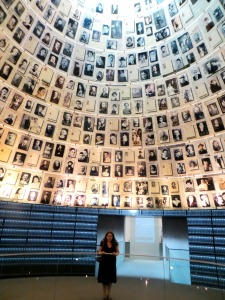 How can you define, through Darwinian natural selection alone, that mysterious inner force in all beings to reach up to the sky, to conquer the universe? That emotion that wells up inside us when we look at a magnificent mountain, when we walk along the shoreline of a vast ocean, when we gaze up to the stars and feel something stir up inside our chest, something that cannot be defined in words alone.
How can you define, through Darwinian natural selection alone, that mysterious inner force in all beings to reach up to the sky, to conquer the universe? That emotion that wells up inside us when we look at a magnificent mountain, when we walk along the shoreline of a vast ocean, when we gaze up to the stars and feel something stir up inside our chest, something that cannot be defined in words alone.
Although I converted to Judaism, I don’t consider myself particularly religious in the sense that I don’t go to temple. Both my parents and myself experienced so much trauma in our early lives without ever being saved by divine intervention. I believe that organized religion and its stringent rules has contributed to more suffering and death than any natural disasters in the history of mankind. So I am not talking about God here.
What I am saying is that we are all connected on some level. We are all part of a grand design that is bigger than the archaic mythology that passes for organized religion. Rooted inside our cells reside the desires, heartaches, and yes – even the memories of every one of our ancestors. And it is this combined force that propels us forward, toward bettering ourselves and the world around us.
Carl Jung talked about racial memory, a collective memory of humanity as a species. To him this meant that the ancestral memories of our forbearers have become part of our collective unconscious and are in fact, continuing to shape our world.
Let me put it in a different way: every single thing that makes us who we are is shaped by our ancestors. Our food preferences, our penchant for hot or cold weather, our phobias and inexplicable fears, even our food sensitivities and idiosyncratic habits lie in our genes. A kitten will instinctively search for the litter box before its mother nudges it; it will automatically salivate at the sound of a can opener or an egg being cracked over a frying pan without ever having tasted eggs or canned food.
In the absence of any actual experiences, genetic memory is carried within our DNA, within the genome of our species.
Just as all rivers flow toward the sea, the blood that flows within our veins carries the memory of its first drop. It REMEMBERS – and makes us who we are.
If you would like to help me write my memoir REMEMBER YOUR NAME, please join me on Patreon.com and become part of the journey.




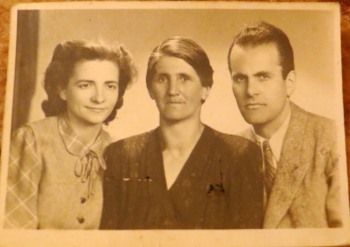

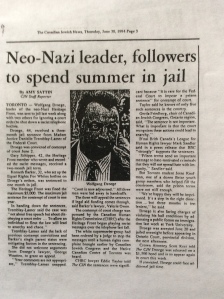
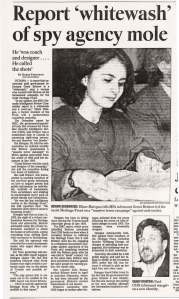


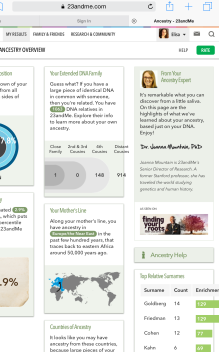

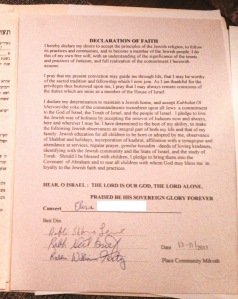
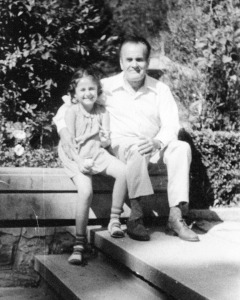
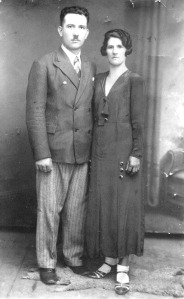

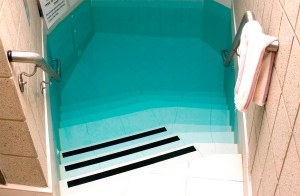

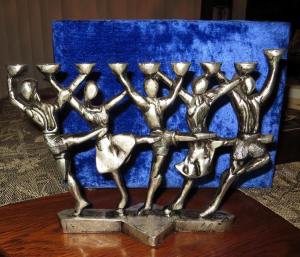
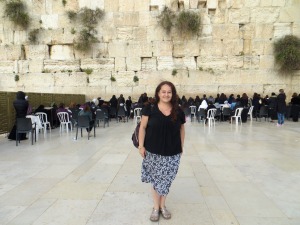


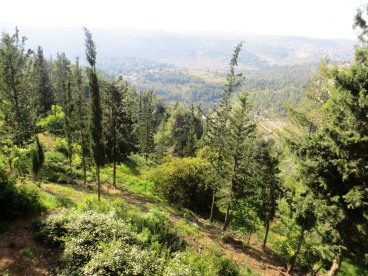
Heal your Wound, Transform the World
Posted by E on May 6, 2015
By now it seems that everybody in the world has seen yesterday’s Toronto Star article, which featured me and my journey toward understanding hate and its visceral, personal roots. I’m very grateful that Rachel Mendleson, a journalist at Canada’s largest-circulated newspaper, saw value in what I am trying to accomplish and worked so hard to share it with others.
The sad and painful truth is this: I have had hundreds of hits on my blog and website yesterday, but not many donations to the book campaign mentioned in the Toronto Star article. Which is the whole crux of the matter – for the last two months I’ve begged, borrowed and bothered people in order to fundraise for a project that I truly believe will make a difference in this world. But, with the exception of a few close, dear friends and a handful of people who believe in me, it’s all gone on deaf ears.
I cannot do this without your help. I’m not just talking money here – although without it, the research involved in this book simply cannot take place. But even dropping a word of encouragement. Sharing the story with others. Telling people on Facebook. Or just believing in me.
Anything at all.
But until now, everybody – yes, even YOU reading this – is probably thinking, Hey, this sounds like a cool project, so SOMEBODY’S going to help out. But the reality is, nobody will. We live in an age of indifference and self-absorption, where a guy on Kickstarter gets $50,000 to buy ingredients for a potato salad, and worthwhile projects and causes are bumped from the limelight in favour of potato-salad-guy or kong-fu-baby. It’s the reality of our time, where the trivial and the insipid have come to dominate social culture as we define it today.
So that somebody you’re thinking might be able to help me, after you leave this blog – well, that’s YOU.
There’s nobody else. If I had a dollar, even five dollars, for everybody who has checked out my blog over the last month but didn’t contribute anything, my book would have been funded by now.
There is just me. And you. And this moment – where you can decide to help me or you can walk away. This is, after all, your choice. But please don’t diminish that choice by assuming that there’s somebody else in line to help me out.
Because there isn’t.
If you DO decide to walk away, I don’t resent you. In fact, I’m kind of wishing I could walk away from it also. But the thing is, I can’t. My entire childhood and my adolescence was filled with hate, abuse and continuous trauma, and I realize today, in my 40th year, that running away from ugliness changes nothing. It’s cosmetic surgery of the heart, but doesn’t repair the wound inside your soul.
My wound goes deeper than my own childhood – it goes into the lives of my parents, and grand-parents, and great-grandparents before them. An epigenetic history of hate, oppression and suppression of the self. I carry in my blood the genetic memory of six hundred years of hatred, pogroms, wars, abuses and oppression. It’s a huge family tree of despair and longing to be remembered. Hence the name of my book.
In Remember Your Name, I’m digging back into the personal transformations of innocents into monsters, as well as digging back further into the history of hidden Jews and forced converts (Sephardic conversos) in Europe, and the internalization of hatred and the transformation of victim into oppressor.
We see the consequences of this legacy of hate everywhere today – oppressed becomes oppressor, persecuted people turn the brutalization they suffered into outward brutality – from the peasant workers’ 20th century revolutions that turned into communist dictatorships, to the Jewish-Arab conflict in the Middle East. Whether it means torching a police car or turning around and inflicting violence upon someone else, we as human beings are collective beings – which means that, even at our worst, we cannot constrain our emotions. They will spill out, for good and for bad, and impact the universe around us.
Right before I converted to Judaism in 2013, I had to write an essay for the rabbis at my Beit Din (Rabbinical Council) to explain why I wanted to become a Jew. This is a segment of that essay:
“My father’s denial of his religion and heritage was like an invisible wall that kept me from my past, but with each day and each hour, the wall becomes increasingly transparent. The bricks fall apart and I begin to see a glimpse of something beautiful and mystical on the other side. The shadows of those great-grandparents and the whispers of their lives comes through to me, through me, and out into my very own existence.
I feel terribly sad that I have had thousands of Jewish ancestors from Poland, Russia, Galicia, Ukraine and Romania, whose truth, lives and stories have been wiped off in only two generations. One hundred years is all it took to wipe out my family’s connection to their own lineage and heritage. I look at the world and wonder how many others walk around unaware that the blood of Sephardic conversos or Ashkenazim forced to hide their religion runs through their veins. But I aim to reclaim that heritage.”
By reclaiming this heritage, I reclaim the pain and the beauty of everyone whose blood gave birth to me today. Maybe I’m being idealistic or naïve, but I keep feeling that if I could SOMEHOW depict how pain and oppression, innocence and brutality, are so closely intertwined, then I might be able to show that there is no such thing as black or white in this world.
There is no ME or YOU. There is no Jew, Arab or Christian. We all laugh, we all cry. We all bleed.
We are ONE. Your pain is my pain, and my memories are your memories now.
Within each and every one of us there is the potential to be a victim and a victimizer, a tormentor and a tormented soul. There is love, and there is hate. And it is the uniqueness and beauty of our human experience which allows you to make that choice – the choice to get involved, to show kindness and compassion, or the choice to walk away.
Ultimately, it’s your choice.
Posted in ancestry, canada, commentary, hate, heritage front, history, jewish, journalism, love, media, news, racism, religion, revolution, romania, toronto, writer, writing | Tagged: choice, conflict, crowdfunding, csis, epigenetics, genetic memory, gofundme, hate, indiegogo, innocence, judaism, kickstarter, love, oppression, toronto star, war | Leave a Comment »